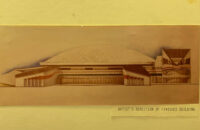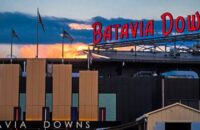Please click the link below to subscribe to a FREE PDF version of each print edition of the Niagara Reporter
http://eepurl.com/dnsYM9
On December 7, 2017, the New York State Advisory Committee on Judicial Ethics issued a startling ethics opinion on judges who are pistol permit licensing officers. Apparently upending decades of practices, they concluded that “a judge who is a firearm licensing officer must not initiate license revocation/suspension proceedings nor conduct such a proceeding without a prosecuting agency.”
This revolutionary opinion has been almost entirely ignored by the press and the public and largely ignored by the Second Amendment community.
The opinion was apparently prompted by a confidential request by at least two judges. It is not clear why they made this inquiry but I believe it is because of legal papers filed in Liberty Party of Erie County v. Cuomo, a challenge to the New York Pistol law I filed in 2015. That lawsuit not only sought a declaration that the Sullivan Act was unconstitutional in whole and in part but also sought to impose personal liability for money damages on the three judges who were sued.
For example, the amended complaint with respect to one judge stated:
“The defendant DENNIS M. KEHOE is the Wayne County pistol permit licensing
officer. He is also a judge but is not acting in a judicial capacity when issuing permits. Licensing officers in New York State, in addition to determining applications for pistol permits, on information and belief, also engage in investigations of applicants and work closely with various police agencies in monitoring the behavior of permit holders, applicants and those whose permits have been suspended. Licensing officers also act as prosecutors of permit applicants and those whose permits have been suspended. Thus, licensing officers do not act in a judicial capacity but rather their duties include investigatory, prosecutorial and law enforcement functions fundamentally inconsistent with the judicial function. On information and belief, licensing officers routinely receive information and evidence about permit applicants or suspended holders of permits on an informal basis and on occasion without the knowledge of the applicant or holder of a permit. All Defendants herein are being sued individually and in their official capacities.”
The defendants’ attorneys responded by arguing rather weakly that the judges were somehow acting as judges when performing all of the above licensing functions. I responded as follows, having sandbagged them a bit:
XIII. THE LICENSING OFFICERS WHO HAPPEN TO BE JUDGES ARE NOT IMMUNE FROM SUIT.
Obviously judges are immune from suit for money damages for judicial acts. The mere fact that a statute confers upon a judge a licensing function does not convert that function into a judicial act. That argument obviously begs the question. Licensing is an administrative function generally performed by non-judges. The respondent has failed to demonstrate that licensing is a judicial function. If it was, the courts would also have to immunize from suit hundreds of other officials who issue licenses and permits.
The fact that judges in Upstate New York act as licensing officials is an accident of legislation. Non-judges handle the job Downstate. All these officials at times investigate, prosecute and enforce penal laws. They commonly receive ex parte communications which are never shared with the applicant or permit holder.
If licensing officials are acting in a judicial capacity, then why do they appear to be massively ignoring or violating the Code of Judicial Conduct?
“A judge shall disqualify himself or herself in a proceeding in which the judge’s impartiality might reasonably be questioned. . . Rules of the Administrative Judge, section 100.3(E)(1)
“A judge shall accord to every person who has a legal interest in a proceeding, or that person’s lawyer, the right to be heard according to law. A judge shall not initiate, permit, or consider ex parte communications, or consider other communications made to the judge outside the presence of the parties or their lawyers concerning a pending or impending proceeding, except:
“Ex parte communications that are made for scheduling or administrative purposes and that do not affect a substantial right of any party are authorized, provided the judge reasonably believes that no party will gain a procedural or tactical advantage as a result of the ex parte communication, and the judge, insofar as practical and appropriate, makes provision for prompt notification of other parties or their lawyers of the substance of the ex parte communication and allows an opportunity to respond.” Rules of the Administrative Judge, section 100.3(B)(6).
The references to ex parte communications speak for themselves. The rule on impartiality pertains to the difficulty of a judge acting as investigator, cop, prosecutor and judge all in one case.
The main case relied upon by the defendants here is poorly argued. In Aron v. Becker, 48 F.Supp. 3d 347 (N. D. N. Y. 2014), the court basically said that the defendant was immune from suit because he was called a “judge” by statute. That contradicted the very case cited by the court which stated that immunity is determined by a functional analysis. Butz v. Economou, 438 U.S. 478 (1978). That is a bad argument since judges are not immune from suit for administrative activities even though those who perform them are called judges and even though those functions are statutorily prescribed or bestowed ex officio. It also implies any number of reductio ad absurdum scenarios such as a small town that appoints the town judge as the animal control officer. If the judge then shoots a dog for no reason, the court in Aron v. Becker would confer immunity. Absurd.
None of the cases cited by the defendants involved the detailed factual allegations in the amended complaint which clearly show that these judges are not acting in a judicial capacity:
“Licensing officers in New York State, in addition to determining applications for pistol permits, on information and belief, also engage in investigations of applicants and work closely with various police agencies in monitoring the behavior of permit holders, applicants and those whose permits have been suspended. Licensing officers also act as prosecutors of permit applicants and those whose permits have been suspended. Thus, licensing officers do not act in a judicial capacity but rather their duties include investigatory, prosecutorial and law enforcement functions fundamentally inconsistent with the judicial function. On information and belief, licensing officers routinely receive information and evidence about permit applicants or suspended holders of permits on an informal basis and on occasion without the knowledge of the applicant or holder of a permit.” Amended complaint, pars. 23-26.
The defendants basically ignore these allegations. However, they must be deemed true by the Court in this motion.
As surprising or shocking as it may be, judges acting as licensing officers are not immune from suit.
***********************
In their very weak reply, the defendants basically ignored my arguments on judicial ethics and accused me of “conjuring up fantastical scenarios of ethical violations and rogue dog catchers.”
The Federal Court’s decision dismissing the lawsuit did not address the ethics issues I had raised.
That brings us to the December 2017 ethics opinion.
http://www.nycourts.gov/ip/judicialethics/opinions/17-166.htm
That opinion clearly echoes my legal brief in LP v. Cuomo as quoted above.
The opinion states:
“A judge must always avoid even the appearance of impropriety (see 22 NYCRR 100.2) and must always act in a manner that promotes public confidence in the judiciary’s integrity and impartiality (see 22 NYCRR 100.2[A]). Among other restrictions, a judge must avoid improper ex parte communications (see 22 NYCRR 100.3[B][6]) and must “not be swayed by … public clamor or fear of criticism” (22 NYCRR 100.3[B][1]). Moreover, full-time judges must not engage in the practice of law (see 22 NYCRR 100.4[G]; NY Const art VI, § 20[b][4]), and a part-time judge may not practice law “in the court on which the judge serves” (22 NYCRR 100.6[B][2]) or act as an attorney in any matter “originating” in that court (Judiciary Law §§ 16; 471).
“We have advised judges to “maintain their independence from prosecutors and not participate or assist in ‘what is essentially the work of the prosecutor’s office’” (Opinions 16-09; 13-33; 10-113; 00-95). Indeed, “a judge must decline to act as the prosecutor’s intermediary” (Opinion 15-197[A]).
“Applying these principles, a judge who is a licensing officer must not initiate license revocation proceedings by providing notice to the pistol permit holder of the alleged grounds for revocation. For example, it would readily create the impression that (1) the judge is engaging in ex parte communications with the affected party, (2) the judge is prosecution-oriented, (3) the judge’s impartiality is compromised, and/or (4) the judge has pre-determined the license holder’s guilt. Moreover, if a judge were to conduct a pistol permit revocation or suspension proceeding without a prosecuting agency, the judge would necessarily be perceived as a surrogate prosecutor practicing law. The positions of initiator, prosecutor and trier of facts are ethically incompatible (see e.g. Opinion 88-147 [town justice may not assist the town clerk in obtaining compliance with dog licensing ordinances by communicating with suspected offenders and informing them of possible violations of law]).
“Ultimately, the decision to either prosecute or refrain from prosecuting pistol permit holders pursuant to Penal Law § 400.00 is a policy decision for the prosecuting agencies, not judges (cf. Opinion 10-142 [“The propriety of a prosecutor’s exercise of discretion in deciding whether and how to prosecute offenses raises legal issues beyond the Committee’s jurisdiction.”]).”
The similarity in language between my brief and the opinion are remarkable and in any event, bears out the accuracy of my legal analysis.
Thus, a major change in the powers of permit judges has been announced with little fanfare and is probably the result of our lawsuit in federal court. Many decades of illegal practices have been condemned. An important victory has been achieved.
For more information about Libertarian Party of Erie County, et al. v. Andrew Cuomo, et al., go here: https://www.gofundme.com/challenge-unlawful-ny-gun-laws
Please share this far and wide. Thanks.






















